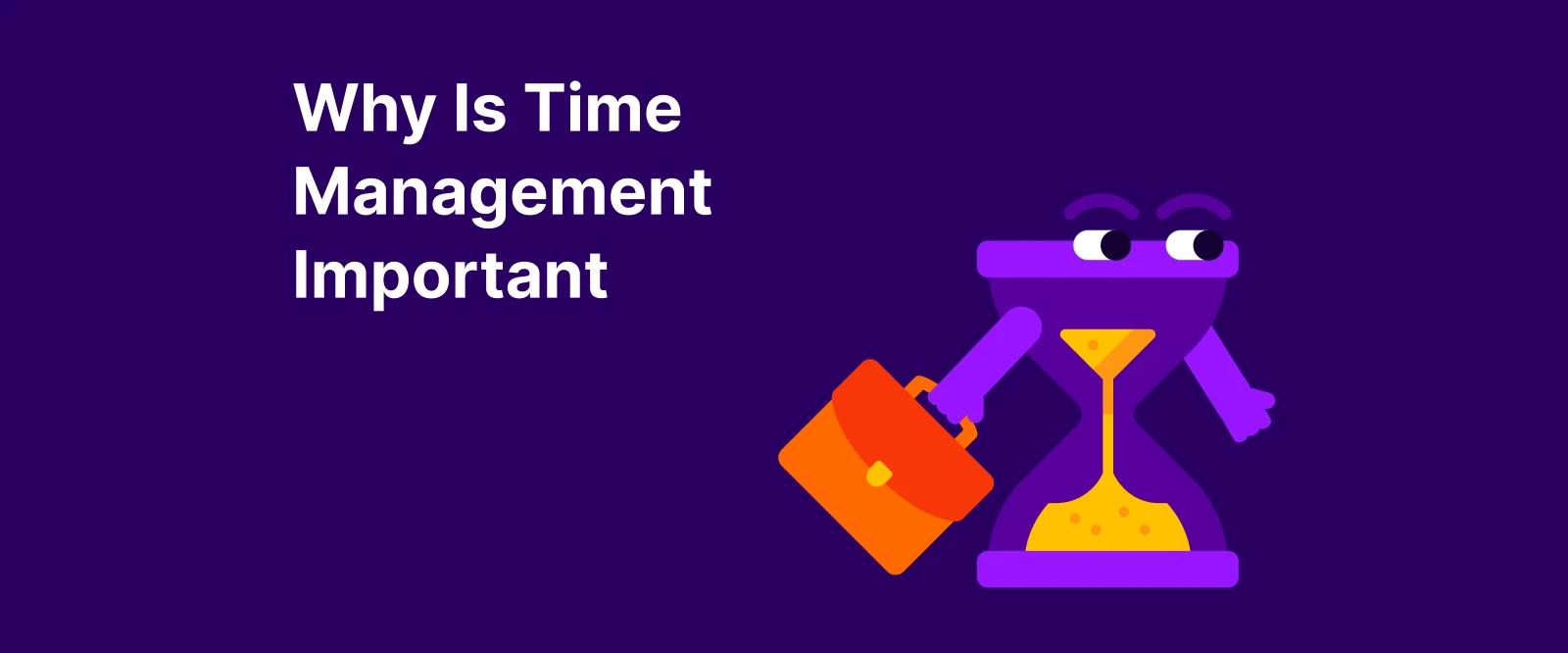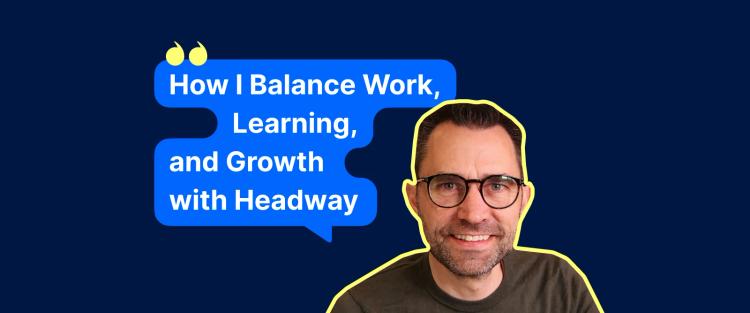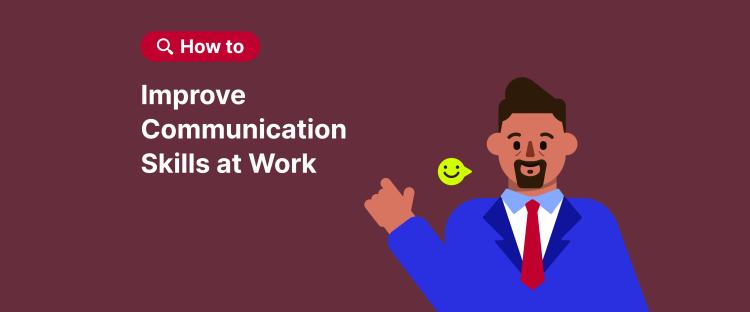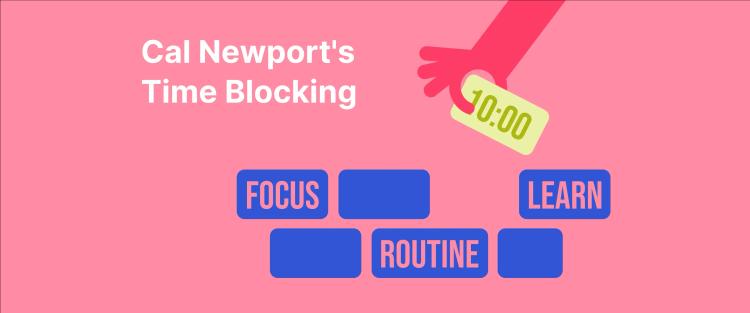Productivity tools are everywhere, yet burnout is at an all-time high. For reference, around 91% of adults experienced high pressure or stress in the last year alone.
As a workplace productivity coach who's helped hundreds of professionals navigate burnout and reclaim their focus, I've seen firsthand how crucial time management is.
Why time management is important in the workplace: A quick answer
It improves productivity by reducing wasted time
It decreases stress through better planning and prioritisation
It supports work-life balance by setting clearer boundaries
It leads to better decision-making and leadership
It aligns daily work with long-term goals and company values
Traditional time management focuses on planning, organising, and prioritising tasks to maximise efficiency and productivity.
While these methods can definitely help individuals stay on track, I believe a more holistic approach is also beneficial. Conscious time management acknowledges that time isn't an infinite resource and encourages people to better understand how they use their time.
What is time management?
Time management is the ability to plan, organise, and allocate time effectively to accomplish specific tasks and long-term goals. It involves setting priorities, creating a to-do list, and using time effectively to improve productivity, reduce stress levels, and maintain a healthy work environment.
In today's busy, always-connected work culture, we need a more mindful and intentional approach to our work.
Conscious time management helps professionals reduce stress, improve focus, and align daily work with long-term goals. This article explores why time management matters, the challenges modern workplaces face, and proven techniques to take control of your time.
Time management techniques that work in the workplace
There are dozens of time management techniques available, and I always encourage my clients to experiment with various approaches, as you may find that one sticks more than others. Here are some common time management techniques:
1. The Pomodoro technique
The Pomodoro technique is widely recognised. It involves breaking work into focused 25-minute intervals separated by short breaks, most often 5 minutes. This can be a really useful approach if you struggle to get started on a task, and it can make daunting tasks seem more manageable.
That said, the rigid 25-minute blocks can disrupt creative flow. Imagine you're deep in thought, writing an important report, and are interrupted by an alarm telling you to stop!
2. Time blocking
Time blocking is a time management technique from the book 'Deep Work' by Cal Newport that involves breaking your day into distinct blocks of time and assigning specific tasks or activities to each block. By setting aside time in advance, you can create a structured day and ensure that your most important tasks receive the attention they deserve.
Time blocking can help reduce distractions and force you to assess your priorities, ensuring that important but not urgent tasks get done. Cal Newport has noted that a time-blocked 40-hour workweek can produce the same output as a 60+ hour unstructured workweek.
By planning your schedule in advance and being intentional with your time, you can reclaim 20 hours each week.
Why is time blocking effective?
Time blocking is powerful because:
It helps you focus on one thing at a time, minimising distractions and multitasking
It forces you to assess your priorities — you only have so many blocks in a day
It allows you to be more efficient by task batching or grouping similar types of work
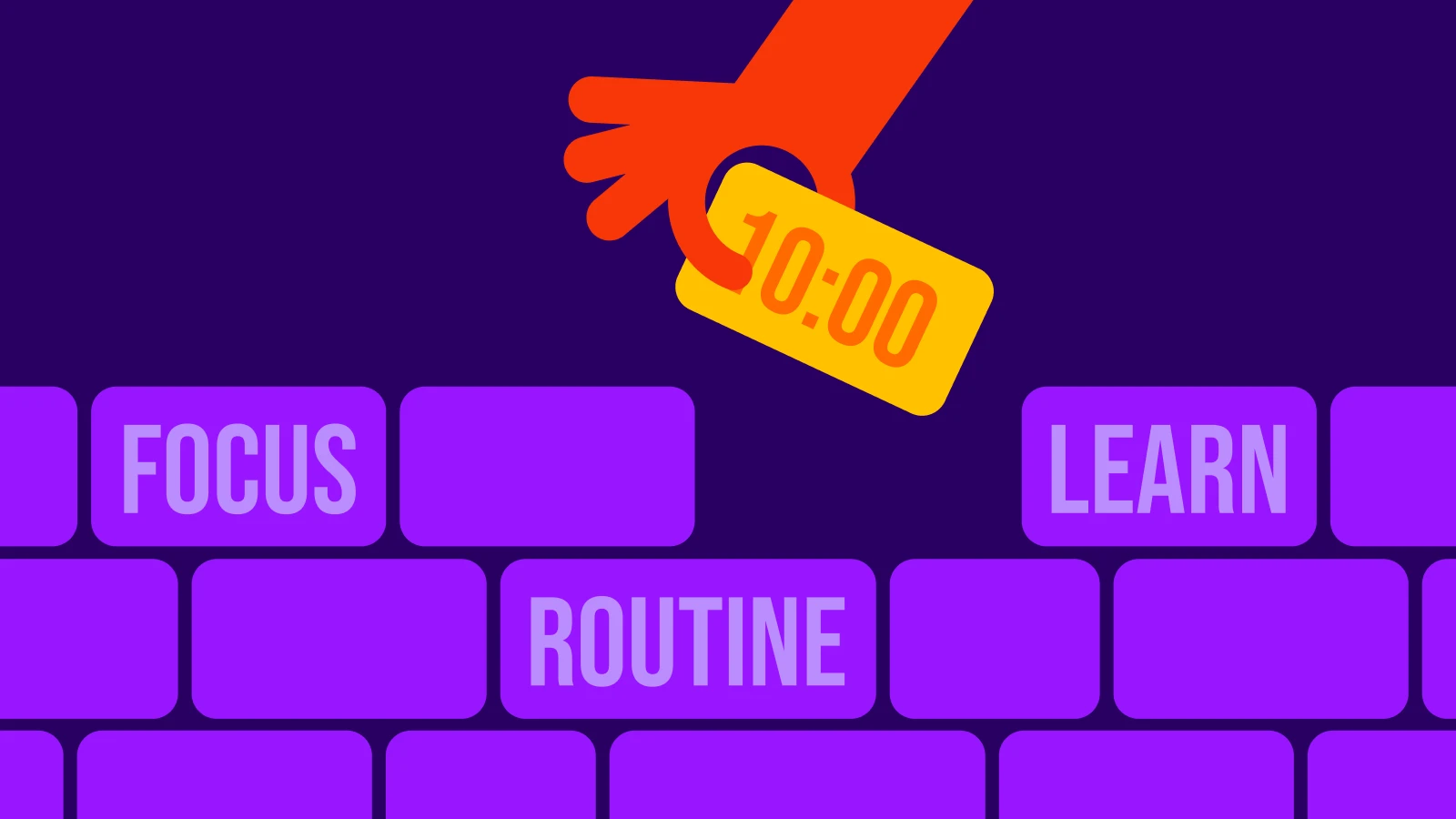
We can outsmart Parkinson's Law, which states that work expands to fill the time available for its completion. If you give yourself 3 hours for a 1-hour task, you'll likely stretch the task to fill the three hours! Limiting our tasks enables us to get more done.
And it also encourages a better work-life balance, as it creates clearer start and finish lines.
By using this technique, I have been able to intentionally create a healthier work-life balance. Many people don't plan their time or evenings after work, but because they don't think about this time, it can feel like it doesn't exist.
3. Time estimation
If you're going to block your time, you need to know how long to set aside. We want to be realistic with what we can accomplish in a day. Most people overestimate what they can achieve, and they underestimate how long tasks will take to complete.
Be mindful of how long things actually take. For instance, a 60-minute gym class actually requires me to block out 2.5 hours of time: 30 minutes to drive to the gym, the class itself, 30 minutes to drive home, and 30 minutes to shower and dress afterwards.
Tracking your time closely for a week can help gather useful information on how long it takes you to complete tasks, and a Time Audit can be impactful (source).
4. Prioritisation
There are many approaches for prioritising. I believe that when you understand your core values and your future vision, you will be able to make decisions and prioritise with ease.
A well-known prioritisation technique is the Eisenhower Matrix, also known as the 4 D's (Do, Decide, Delegate, and Delete). It's a four-category tool, with two columns and two rows. The columns are labelled 'urgent' and 'not urgent', and the rows are labelled 'important' and 'not important':
Tasks in the urgent and important category should be done immediately (Do)
Tasks that are important and not urgent should be scheduled for a later date (Decide)
Tasks that are urgent and not important should be delegated to someone else (Delegate)
If the task is not urgent and not important, then it should be removed altogether (Delete)
You might think that 'urgent' and 'important' are the same. But they're actually different. Urgent tasks are time-sensitive. They might be simpler than important tasks, such as replying to emails or filling out forms, but we feel pressured to do these tasks first because they require us to be reactive.
These are often the tasks we focus on first, even though they might not give us the most impactful results for our work or overall lives. Important tasks, by contrast, tend to be more complex and strategic.
They are aligned with our goals, and achieving them advances our personal or professional lives. A lot of people will get stuck in firefighting mode, doing all the urgent tasks, and the non-urgent, but important tasks get neglected.
One simple way to prioritise your workload is to categorise the tasks into 'Now' and 'Not Now'; this places focus on the tasks that need immediate attention.
Another simple approach is the ABC method, where you label your tasks based on the following system:
A tasks must be done
B tasks should be done
C tasks are nice to do
One final prioritisation approach is 'eat that frog' from Brian Tracy's book, 'Eat That Frog'. Mark Twain once said that if the first thing you do each morning is to eat a live frog, you can go through the day with the satisfaction of knowing that it is probably the worst thing that is going to happen to you all day long.
But don't worry, you don't really have to eat a real frog to be successful! In reality, your 'frog' is your biggest, most important task. It's the one you are most likely to procrastinate on if you don't do something about it. So, 'eat that frog' is another way of saying that if you have two important tasks before you, start with the biggest, hardest, and most important task first.
But why is time management important in the workplace
I firmly believe that time management is a strategic skill that, when executed well, can enable you to flourish, both professionally and personally. Let's explore the key reasons why conscious time management should be part of your toolkit:

Improves focus and reduces distraction
Conscious time management promotes mindfulness and intentionality, enabling professionals to stay present with each task. This reduces the mental clutter caused by context-switching.
Supports sustainable productivity
Instead of pushing for more at any cost, conscious time use recognises our personal energy rhythms and prioritises rest, boundaries, and recovery. This helps to prevent burnout and maintain long-term performance. Chronoworking, a phrase coined by Stylist editor Ellen Scott, focuses on the importance of our energy. It means structuring your workday around your natural energy peaks and dips, essentially working in sync with your body clock or circadian rhythm, rather than adhering to the traditional 9-to-5 schedule. This may not be feasible for all professionals, but having an awareness of when you do your best work can be helpful when creating your plan for the week.
Aligns work with values and goals
Conscious time management ensures that daily actions reflect broader individual and organisation priorities. It helps people work on what truly matters, rather than reacting to every urgent task or request.
Enhances emotional well-being
When people feel in control of their time and make intentional choices about how they spend it, they're less likely to feel overwhelmed, anxious, or resentful, which can boost morale and mental health.
Strengthens decision-making and leadership
Leaders who use their time consciously set an example for thoughtful, value-led work. It enables clearer strategic thinking, better delegation, and a culture that prioritises thoughtful action over hustle and reactive busyness.
Challenges in modern workplaces
Even with the best time management tools and intentions, today's workplace presents unique challenges that can derail productivity and focus.
Remote working
Working from home can be brilliant — no commute, more flexibility — but it also brings some unique challenges like blurred boundaries, distractions, and motivation dips. Without the structure of a traditional office or real-time accountability, it's easy for time to slip away unnoticed. Emails creep into your evenings. You stay in your 'work' clothes all day. Or you find yourself switching on your laptop after dinner to 'just catch up'.
Digital overload
We often think of distractions as big, obvious interruptions. But some of the most damaging ones are the ones we barely notice. Between emails, Teams messages, calendar reminders, and app notifications, most professionals are bombarded with digital pings and dings all day long. This constant influx disrupts our attention and makes deep focus increasingly hard.
Even if your phone is on silent, switched off, and face down on the desk beside you, research shows it still drains your cognitive resources (source). Your brain is subconsciously aware of it, and part of your attention stays tethered to it, just in case it lights up or buzzes.
3. Context switching
It might feel efficient to 'multitask', but switching between tasks drains mental energy, increases the chance of error, and can lead to decision fatigue. It's been shown to actually reduce productivity by up to 40% (source).
Every time you're pulled out of a task by a ping, a pop-up, or a mental 'just check' — it takes an average of 23 minutes to get fully back into flow. It's also been shown that we are distracted every 3 minutes whilst at work (source). You can see how our attention gets fragmented without us even realising it.
I also see this often with emails: people spend their entire day reacting to them, letting new mail dictate their priorities. Meetings pile on top of that, and by the time the day ends, they still haven't made progress on meaningful work.
So what happens? They finally start working on important projects in the evening, when it's quiet and everyone's offline.
That cycle isn't sustainable. It's productive in bursts, but not intentional, and definitely not healthy long-term.
Real-life example — how time blocking helped Beth reclaim her time
Beth Wright, a business strategist and coach, juggles a full professional plate: running her own business, co-founding HCW Consulting Partners, and raising two young boys, often solo-parenting while her husband works away. It's a life she loves, but at times, the competing demands leave her feeling overwhelmed and exhausted.
"I often felt overwhelmed, would forget to do things, and many tasks were left to the last minute," Beth explains. "Sometimes things were just crazy."
After an experience with burnout that had forced her to leave a corporate job, Beth recognised the early signs creeping back in earlier this year. That's when she made a conscious decision to regain control, starting with how she managed her time.
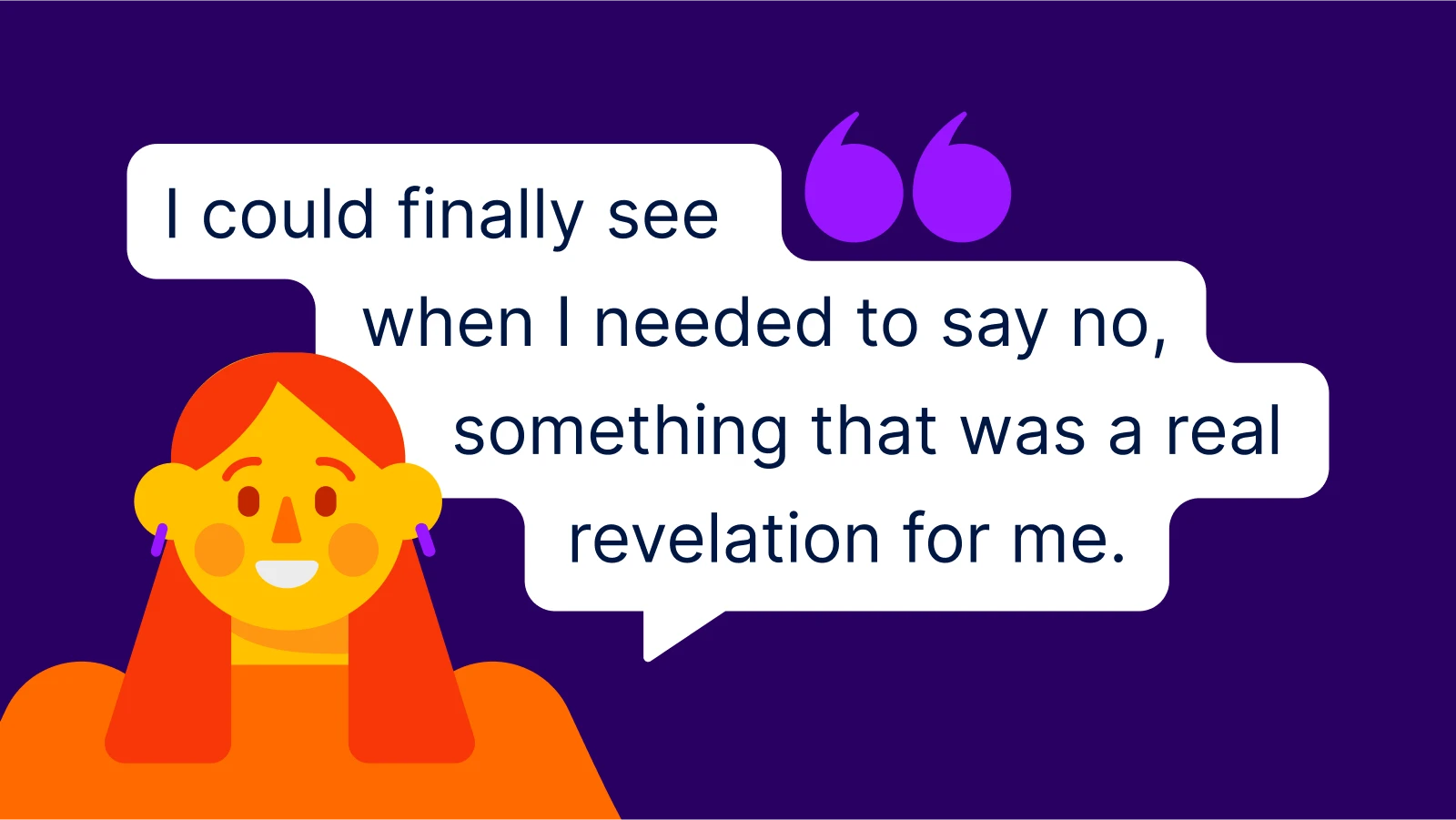
Working with Sarah, Beth learned how to implement time blocking, strategically planning her calendar around both personal responsibilities and professional priorities.
"Sarah taught me how to time block my calendar, which gave me the tools and insight to manage not just my time but my energy," she says. "I could finally see when I needed to say no, something that was a real revelation for me."
Beth now plans her time a month in advance, factoring in family life, school events, client work, and focused project time. This proactive approach means she no longer has to burn the midnight oil to stay on top of deadlines.
The shift has been transformative:
Client projects are delivered early
Stress has significantly decreased
She enjoys quality, present time with her boys, and rarely works weekends
"Learning to time-block has been an absolute game-changer for my business and my life in general," Beth shares. "I want to spend as much quality time with my family as possible, and planning how I use my time and energy helps me do that."
Beth's story is a reminder that time management isn't just about productivity; it's about creating space for the life you want to live.
Best books to read about effective time management
Looking to dive deeper into the principles and techniques of time management? These bestselling books offer actionable insights, practical frameworks, and inspiring mindsets to help you take control of your time and energy:
‘168 Hours: You Have More Time Than You Think' by Laura Vanderkam.
This book challenges the idea that we don't have enough time. Vanderkam argues that we all have 168 hours each week — the real issue is how we choose to spend them. Through real-life examples and time-tracking exercises, she helps readers identify time leaks and realign their schedules with what truly matters.
'Eat That Frog!' by Brian Tracy
A classic productivity guide that emphasises the power of tackling your hardest, most important task first. Tracy provides 21 techniques to overcome procrastination and boost focus, helping professionals take decisive action and stop wasting time on low-value tasks.
'Deep Work' by Cal Newport
Newport explores the concept of focused, uninterrupted work as a competitive advantage in today's distraction-heavy world. He offers strategies to train your concentration, cut out shallow tasks, and build deep, meaningful work into your schedule.
'Essentialism: The Disciplined Pursuit of Less' by Greg McKeown
McKeown makes the case that success comes not from doing more, but from doing less, better. This book teaches you how to eliminate the nonessential, say no with confidence, and create space for deep work and rest. It's especially useful for professionals overwhelmed by competing demands and struggling to find clarity in their schedules.
'Make Time: How to Focus on What Matters Every Day' by Jake Knapp and John Zeratsky
Written by two former Google and YouTube designers, 'Make Time' offers a flexible, practical framework to help you focus on what matters most each day. The authors introduce the "Highlight" method — a daily priority-setting approach — along with over 80 science-backed tactics to combat distractions, control technology use, and design your day intentionally. It's a great pick for professionals who want to reclaim their attention without rigid systems.
Written by Google's former SVP of People Operations, this book dives into how one of the world's most productive companies manages talent, optimises workflows, and fosters a culture that encourages autonomy and innovation. It's ideal for leaders looking to improve team members' time use, align values with strategy, and drive high-quality work without burnout.
All these titles are available in bite-sized summaries on the Headway app, so you can apply their ideas immediately without adding them to your reading list.
Learn about effective time management strategies with Headway
My favourite author in the time management and productivity genre is American writer, Laura Vanderkam. I own at least five of her books, maybe six even, with a favourite being ‘168 Hours: You have more time than you think.'
She argues that "I don't have time" usually means "it's not a priority," and encourages people to track their time, take ownership of their choices, and eliminate or delegate less important tasks so they can spend more time on what truly matters to them.
I also more recently enjoyed Ali Abdaal's book 'Feel-Good Productivity', which challenges the notion that productivity is all about discipline, willpower, and relentless hard work. He argues that the true secret to sustainable productivity is cultivating positive emotions and making work feel enjoyable.
FAQs about time management in the workplace
What are the five reasons that time management is important?
Time management is important because it helps you increase productivity, meet deadlines, reduce stress, balance your personal life, and optimise your workflow. When team members manage time well, they experience fewer missed deadlines, enjoy more free time, and produce high-quality work. These are key benefits of time management in any professional work environment.
What are the 10 benefits of time management?
The top 10 benefits of time management include:
Reduced stress
Better task management
Improved job satisfaction
More free time
Ability to meet deadlines
Enhanced workflow
Good time management habits
Better project management
High-quality work output
Lower stress levels in your work environment
What is the main purpose of time management?
The main purpose of time management is to optimise how you spend your time so you can complete tasks efficiently, maintain a healthy work environment, and increase productivity while keeping stress levels low. It allows professionals to align their to-do list with clear goals and produce better results in less time.
What is the conclusion of time management?
Good time management is not just about checking off a to-do list — it's about intentionally using your work hours to create balance, avoid missed deadlines, and support both professional growth and your personal life. With focus and structure, anyone can achieve more in less time and experience more satisfaction and free time.
Why do people find it difficult to manage time?
Many people struggle with time management due to poor planning, lack of clear goals, digital distractions like social media, and unrealistic to-do lists. Without a system to streamline workflow and take regular breaks, it becomes harder to optimise time, lowering overall productivity and increasing stress levels among team members.
What is the key to good time management?
The key to good time management is knowing how to prioritise your to-do list based on clear goals, set realistic time limits, and take regular breaks. These habits help team members stay focused, reduce stress levels, and use their time wisely to produce high-quality work and better outcomes.
What is the golden rule of time management?
The golden rule of time management is to schedule your priorities, not just prioritise your schedule. Focus on the most impactful tasks first to increase productivity, protect your free time, and ensure you align your time with your work environment, goals, and personal life.
What is the primary goal of time management?
The main goal of time management is to complete tasks effectively, increase productivity, and maintain balance between your work and personal life. By focusing on task management, setting clear goals, and managing your workflow, you can use your time well and achieve more in less time with reduced stress.
What are time management skills?
Time management skills are the abilities that help individuals plan, prioritise, and execute tasks efficiently within a set amount of time. These include task management, goal setting, delegation, scheduling, and the ability to stay focused. Strong time management skills help team members stay organised, meet deadlines, and produce high-quality work with less stress.

